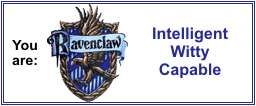 Banker to the Poor
Banker to the PoorBy Muhammed Yunas
Public Affairs Press (Perseus Books) 1999, 2003, 2006
Grameen Bank
Nobel Peace Prize 2006
National Geographic
Excerpt - Chapter 4
More on the Nobel Prize
Article
I finished the book on Thursday, and I really enjoyed it. For those of you who have never heard of Micro-Credit, the idea is that very poor people can borrow small amounts of monrey to buy raw materials to make goods, and then sell their goods to whomever they choose, and for whatever they can get - thus making a profit. No credit check, no collateral, no down payments required.
In 1976, Muhammed Yunus (Ph.D) was an Economist Professor at Chittagong University in SE Bangladesh. Not far from the campus was a village called Jobra. He went to visit one day and asked the villagers how they were surviving. They said they were not, because the loansharks were not paying them enough to both live on and buy more raw materials. Yunus asked them how much they needed to survive. They gave small amounts - the equivalent to $2, $5, $7 and so on. Yunus said they could ask for more if they wanted it, but they only ever asked for what they absolutely needed to survive. So Yunus paid out (the equivalent of) $27 to several villagers, and in a matter of months, every villager had paid him back what he or she had been given.
In Bangladesh, before micro-credit came along, the poor villagers would have to borrow money from the loansharks, and this put them into vicious cycles, because they could never earn enough to live on or to buy more raw materials. The way it worked was like this. The villager asks the loansharks for money. The loansharks would lend the small amount of money, but only with the proviso that the applicant sells the finished items to the loanshark. The loanshark usually paid a pittance to the villager - barely enough for them to survive, let alone make a profit. The loanshark is then free to sell the item for whatever he can get.
So Yunus decided to start a "bank" that would loan these small amounts to the villagers. When he went to talk to commercial banks asking for "seed" money to start this idea, they laughed at him.
Villagers dont have any collateral.
Villagers will never repay what they borrow.
Villagers are too stupid to know what to do.
Villagers dont know how run a business.
The banks were discriminating against their own people. Which is why the poor people (anywhere) can never rise above poverty as long as the banks and government bureaucracy KEEP them there. Poverty will NEVER disappear as long as the discrimination and red-tape continues.
Yunus goes onto describe the battles he had with the Bengali government, and the religious leaders. When he started hiring female workers to work in his banks, he was told that he was doing a bad thing, because women in Islam do not work. Their families would get bad reputations if the girls started working. Good Muslim girls get married and have families. That is the Muslim way. That is what Yunus was told. Yunus is also a Muslim, but he was always secular, not religious.
The Grameen Bank now has 95% of their clients fully repaying their loans. A weekly repayment plan is set up, and every villager keeps to it, because they know that if they default, they will never have another chance to get ahead in life. This is their ONE chance to drag themselves out of exteme poverty.
The Grameen bank has now expanded to providing other services such as telephones, internet, education & health insurance. There is a Grameen Foundation based in Washington DC. The Grameen Foundation's mission is to empower the world's poorest people to lift themselves out of poverty with dignity through access to financial services and to information.
After I posted the brief review of this book on Thursday, I was very surprised to receive an email from the Grameen Foundation in USA telling me that Dr Yunus had recently published a new book.
Greetings! My colleague forwarded onto me your blog entry regarding Banker to the Poor. We are happy to see your interest in microfinance. We wanted to alert you and your readers that Dr. Yunus has recently released a new book, Creating a World without Poverty. This new book has been getting media attention worldwide, including his appearance Thursday night on the Colbert Report on the U.S. cable channel Comedy Central. In support of his book, Grameen Foundation, which was founded with his support and interest, has created a Web site for those interested in learning more about social business. We are in the final stages of launching a blog where those who have read the book can discuss the issues raised in this book. On behalf of Grameen Foundation, I invite you and your readers to explore Dr. Yunus new book, and leave your thoughts on our blog.
And as I said before, this book was read for the Around the World Challenge.









No comments:
Post a Comment